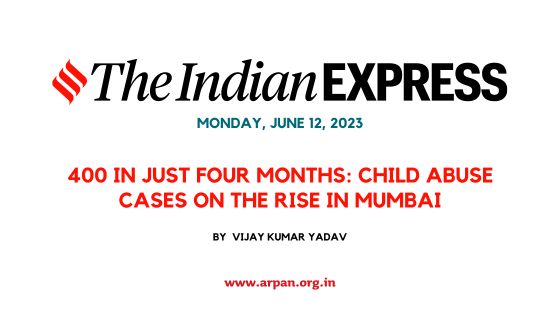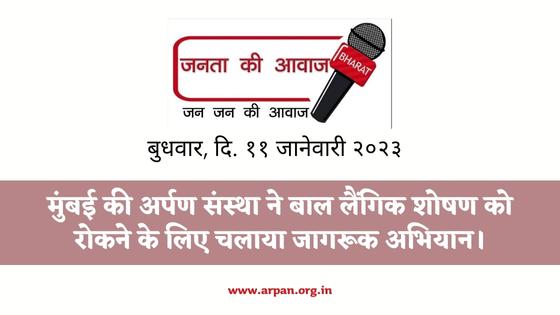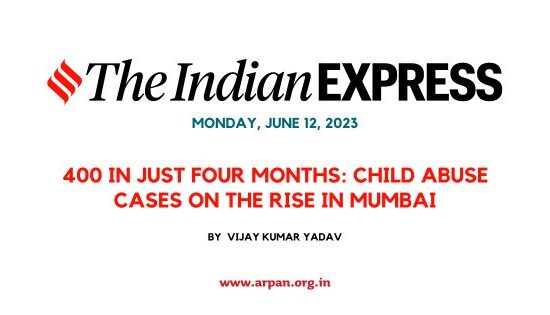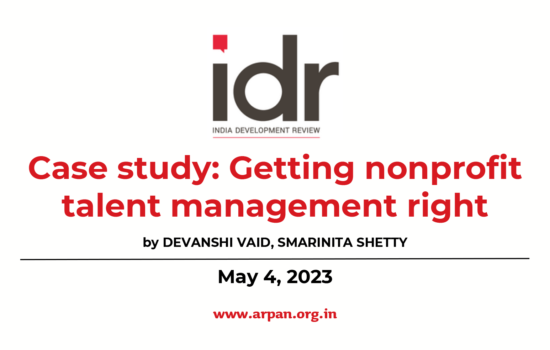Dr. Manjeer Mukherjee, Senior Director at Arpan, asks whether punitive measures like capital punishment or extra-judicial killings of accused by police will be effective in eliminating the rape culture from our country.
The recent brutal gang rape and murder of a young woman in Hyderabad had again sparked a public discourse around sexual offenses and demand for stringent measures like capital punishment to be deployed in order to curb such incidences in the future. Others are asking for execution and chemical castration. This is no different from what we witnessed as a country a few years ago after Nirbhaya’s brutal rape. Nothing has precisely changed from then till now – rape of children and women is as commonplace as it was. Let me correct myself, there is one difference this time – the four accused involved were killed in an encounter with the police. This might underscore public anger as there are quite a few of us who feel that this is fair and just. But this is taking us a thousand steps backward as a society.
The demand for the death penalty or championing extra-judicial killings of the accused arises from a sense of disgust, need for revenge and not necessarily from a need to create a safe society for women and children. If we really want to create a society free from sexual violence we need to stop being reactive, rather we need to work towards disrupting normative patriarchal framework which reinforces and perpetuates toxic masculinity. We need to disrupt the status quo that proclaims it is natural for men to be aggressive, to lack impulse control, and exert power and authority and women to be passive and submissive. As sexual offenses against children and women do not just happen overnight it’s a particular patriarchal order that produces an offender as well as an environment allowing an offense – eliminating the ‘rape culture’ is the solution and not necessarily the ‘rapist’.
Some of us who are championing the death penalty as the solution are doing so on the premise that the fear of possible death will deter a would-be offender from committing a serious crime. Here we are forgetting a simple truth that law per se cannot act as a deterrent as it is one’s perception of law that creates boundaries and facilitates decision making which results in deterrence. As such, the efficacy of deterrence in reducing crime is deeply doubtful in India, considering that the certainty of punishment itself is very low for a variety of reasons –social stigma, deep-seated patriarchy and a long drawn and often humiliating investigation and trial process.
National Crime Record Bureau data also has shown year on year that in more than 90 percent cases of rape the perpetrator is known to the child or woman. Are we expecting that children or even adult women to come forward, disclose and testify against their fathers, uncles, brothers or neighbours? Even after they know that their testimony may end up in somebody losing their lives. It is too much of a burden to put on the survivor and it will increase the hesitation of the victim to prosecute such cases. The death penalty also puts the victim in way of further harm, the law now provides an incentive for the perpetrators to rape and then murder their victim – after all, it eliminates the solitary witness to the crime at no additional cost.
The Supreme Court of India has itself also recognised that the confirmation of the death sentence depends on the personal predilection of the appellate judges constituting the bench and its application is subjective and arbitrary. Simultaneously, empirical studies have shown the disparate impact of the death penalty on marginalised and vulnerable groups. Given these well-recognised contradictions, the death penalty is hardly a solution or response to sexual assault, rather it is a hasty disproportionate reaction.
The portraying of sexual offenders as the ultimate demon, the criminal justice system (including punitive measures of capital punishment) as the only magic wand is far from the solution as sexual offending is a complex multifaceted issue which has to be dealt at a multi systemic level and at the core of its foundation. There is no doubt we need a society and a legal framework that is intolerant to sexual violence, but we need a tad bit more. We need regular conversation on primary prevention of all forms of gender-based violence, we need concentrated efforts to make our society abuse-free and institutions effective and responsive, we need to raise children of all genders to respect each other’s personal boundary, we need positive role models who question stereotyped gender roles and boxes, we need to stop sexist and gendered practices, expressions and language and we cannot anymore pass sexist comments and views as jokes to be laughed at. We need to dive deep and dismantle the status quo that upholds patriarchy – therein lies the real solution which will combat the rape culture.
Dr Manjeer Mukherjee is a trained sociologist and has been extensively working with the developmental sector for the last 13 years on issues of gender, health, violence and Child Sexual Abuse. She is currently associated with Arpan as Senior Director, Programmes and works closely with the Training, Resource Development and Public Engagement teams. The views expressed are the author’s own.
Source: SheThePeopleTV











